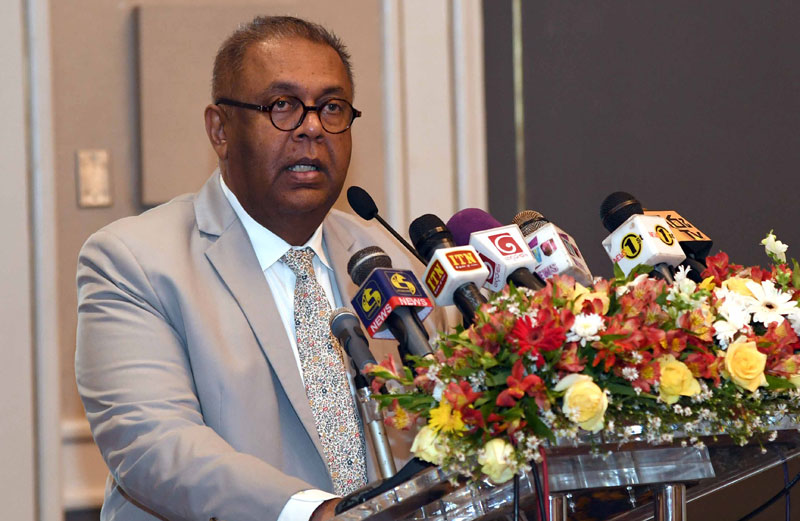The Minister was addressing the 17th AGM of the Inland Revenue Commissioners Association held yesterday.
Thanking the Association for inviting him to grace the occasion as the Chief Guest, Minister Samaraweera said the occasion would provide an opportunity for some interaction at a very important period in the annals of the Inland Revenue Department.
The Minister said this is a period of transition since it was a few weeks since the new Inland Revenue Act became operative. As such, they as a government were facing a series of challenges. However, he considered problems which cropped up as an indication of the success of their endeavour in reshaping the tax system.
If we were to succeed in this situation creative answers should be found to the practical issues that cropped up, Minister Samaraweera said.
Minister Samaraweera said the entire responsibility in this taxation process devolved on the Inland Revenue Department. If they worked together by joining hands, they could achieve the expected targets and structural changes in a short time.
The Minister said the new Inland Revenue Act had brought in a clear strategy to obtain foreign investments to the country. An attractive strategy had been introduced to provide foreign investments to the Northern and Eastern Provinces which suffered most from the war.
Earlier, investments were brought arbitrarily according to the whims and fancies of individuals. But the new act had introduced provisions to obtain investment with necessary legal security.
Furthermore, excessive powers enjoyed by the Finance Minister regarding taxes have been given over to the Inland Revenue Department, he said.
This would provide a level playing field enabling the department to treat everyone in a fair and transparent manner. Now tax exemptions could not be granted to selected persons anymore, he added.
The Minister said he expected the Inland Revenue Department to take this opportunity to perform a sterling service towards the countrys economy.
The Minister also thanked the Inland Revenue Department for carrying out a successful public awareness programme on the new Inland Revenue Act. If that programme helped to create positive attitudes among the and a social responsibility of citizens, it would help them achieve their objectives.
The Minister said Sri Lanka would become a high middle income level country from January 19, 2019. This necessitated the country to transact with the world under new laws and regulations and a systematic institutional framework.
The operation of the RAMIS system to which the department is connected and the VAT reimbursement to tourists on their departure would enable the country to achieve quick economic development, Minister Samaraweera said.
The new taxes would enable the government to become richer so that it would acquire strength to act in a decisive manner in times of natural disasters and cater to the health, education and other needs of the people, he said.
Secretary to the Treasury Dr.R.H.S. Samaratunge, Deputy Secretary to the Treasury S.R. Atygalle, Deputy Secretary to the Treasury Chandra Ekanayake, Additional Secretary R. Semasinghe and Commissioner of Inland Revenue Ivan Dissanayake were also present on the occasion.
Inland Revenue Act aims to raise direct taxes to 40% - FM














